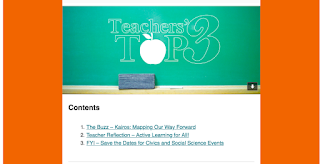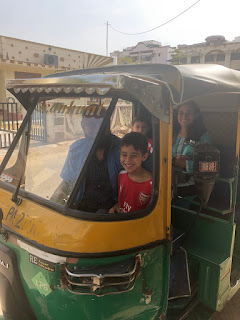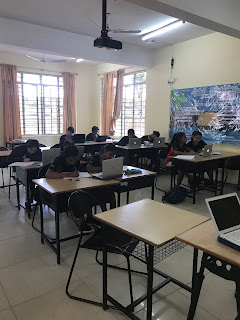
I wrote a reflection piece for the Massachusetts Department of Education on what I am doing on my Fulbright. Funny how timing works. I am at the half mark of my time in India and it is a perfect time to reflect on what I am learning and doing. Check it out!
2. Teacher Reflection – Active Learning for All!
|
|
| Brinda Tahiliani, the 2018 Massachusetts History Teacher of the Year, is in India completing a Fulbright Distinguished Award in Teaching. She resides in Dedham and has taught U.S. history at New Mission Collegiate Academy (part of the Boston Public Schools) for 13 years. |
|
|
Both my teaching in a Boston public school and my research in India are focused on making sure students have the skills not only to succeed on standardized tests but to solve problems creatively through researching, learning, teaching, and collaborating.
My goal is to integrate within my U.S. history curriculum the ability for youth to come together, define for themselves what problems they face in their community, and create ways to solve those problems through academic and observational community research. This will culminate in strategic and informed actions. The idea is to shift the student from being a passive learner to an active learner.
I start small and build student’s abilities to do longer youth participatory action research (YPAR) projects or Design Thinking Processes as their mid and final assessments. In participatory action research, we would explore how students are solving issues they identified in their own communities. The Design Thinking Process takes students through five steps — empathize, define, ideate, prototype, and test — that help students systematically approach and creatively address problems.
At one school where I worked in India, students are separated into four “houses.” We asked eighth grade students who were learning about the Moghul Empire to answer the following questions as homework:
- A. How and why was the Moghul Empire created?
- B. Why did the Moghuls create the systems that they did?
- C. How can you apply those same systems within your school houses?
- D. How do you make your house the strongest house and build your "empire”?
The idea is to have students connect the history to their current lives. The next day in class, several students shared their thoughts and made connections to current global corporation practices. One student discussed the competition between Uber and Ola (a local version of Lyft) and how they try to be the best in their industry. Through their presentations, students demonstrated their skills in critical thinking, leadership, conflict resolution, research methods, public speaking, communication, advocacy, and much more.
I will be in India for three more months, and I look forward to working with another teacher to implement mini design thinking processes and, separately, with prospective teachers to make students more active in their own learning. I’ll take what I’ve learned back with me, sharing lessons I learned from my Indian students with their counterparts in Boston.
|
|






Comments
Post a Comment